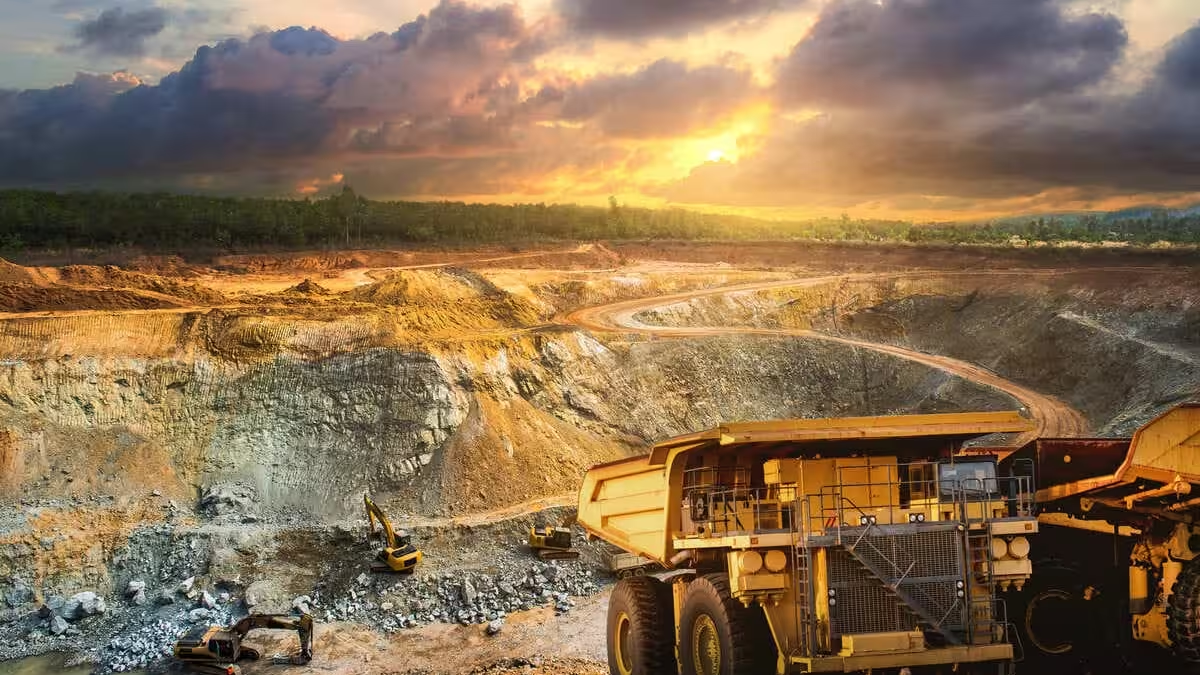Algeria Unveils Ambitious Gold Prospecting Initiative to Boost National Production
Algeria is taking bold steps to solidify its position in the gold sector with a groundbreaking initiative aimed at unlocking the country’s vast mineral potential. The Minister of Energy and Mines,Mohamed Arkab, recently announced the identification of 93 new sites for artisanal gold prospecting in the southern regions. This move is part of a broader strategy to stimulate national production and combat illegal exploitation of the precious metal.
With gold reserves estimated at 173.56 tonnes, Algeria ranks first in Africa, according to the World Gold Council (WGC). Despite this wealth, the country’s gold output has been modest. Sence its inception in 2001, the National Gold Mining Company (ENOR) has produced less than 7 tonnes over two decades. This low productivity is attributed to a lack of investment and advanced technologies, notably in the Hoggar regions of Tamanrasset and In guezza.
To address these challenges, the Algerian government launched a strategy in 2021 to promote artisanal gold mining. This initiative includes granting operating permits to small local businesses, with 222 licences awarded to date. These efforts have not only boosted the local economy but also curbed illegal gold trafficking.
Minister Arkab emphasized that the identification of the 93 new prospecting sites marks a pivotal moment in this strategy. The wilayas of Tamanrasset, In Guezzam, and Tindouf will undergo in-depth studies before the sites are allocated to micro-enterprises for artisanal exploitation.This initiative is poised to transform Algeria’s mining sector. Beyond increasing gold production, it promises to create jobs and drive economic progress in the southern regions.
Key Highlights of Algeria’s Gold Sector
Table of Contents
| Aspect | Details |
|————————–|—————————————————————————–|
| Gold Reserves | 173.56 tonnes (1st in Africa) |
| Production (2001-2021)| less than 7 tonnes by ENOR |
| New Prospecting Sites | 93 sites identified in Tamanrasset, In Guezzam, and Tindouf |
| Licences Awarded | 222 to small local businesses since 2021 |
| Primary Goal | Boost production, reduce illegal mining, and promote regional development |
Algeria’s renewed focus on its gold sector underscores its commitment to diversifying its economy beyond oil and gas. by leveraging its untapped mineral wealth, the country is paving the way for enduring growth and prosperity.
For more insights into Algeria’s mining initiatives, explore the latest updates on gold prospecting in Algeria.
Algeria’s Gold Rush: Unlocking Mineral Wealth Through Enterprising Prospecting initiatives
algeria is making headlines with its bold new strategy to tap into its vast gold reserves, estimated at 173.56 tonnes—the largest in africa. In an exclusive interview, we sit down with Dr. Karim Benali, a leading expert in mineral economics, to discuss the country’s groundbreaking gold prospecting initiative, its potential to boost national production, adn its broader economic implications.
Introduction to Algeria’s Gold Sector
Senior Editor: Dr.Benali, thank you for joining us.Algeria has recently announced the identification of 93 new gold prospecting sites in the southern regions. Can you provide some context on the current state of Algeria’s gold sector?
Dr. Karim Benali: Thank you for having me. Algeria’s gold sector has immense potential, but it has been underdeveloped for decades. Despite having the largest gold reserves in Africa, the country has produced less than 7 tonnes since the National Gold Mining Company (ENOR) was established in 2001. This is largely due to limited investment and outdated technologies, notably in regions like Tamanrasset and In Guezzam.
The New Gold Prospecting Initiative
Senior Editor: The government has identified 93 new sites for artisanal gold mining. What makes this initiative so meaningful?
Dr. Karim Benali: This initiative is a game-changer. By identifying thes sites,the government is not only aiming to increase gold production but also to formalize artisanal mining,which has historically been plagued by illegal activities. The focus on regions like Tamanrasset, In Guezzam, and Tindouf is strategic, as these areas are rich in mineral resources but have lacked proper infrastructure and investment.
Combating Illegal Gold Exploitation
Senior Editor: Illegal gold mining has been a persistent issue. How does this initiative address that?
Dr. Karim Benali: By granting operating permits to small local businesses—222 licenses have been awarded as 2021—the government is creating a legal framework for artisanal miners. This not only curbs illegal activities but also ensures that the economic benefits of gold mining are distributed more equitably. It’s a win-win for both the government and local communities.
Economic and Regional Progress
Senior Editor: Beyond gold production, what broader economic impacts do you foresee from this initiative?
Dr. Karim Benali: The initiative has the potential to transform the southern regions economically. By creating jobs and fostering local entrepreneurship,it can drive regional development and reduce economic disparities.Additionally, increased gold production will contribute to Algeria’s GDP and help diversify the economy, which has been heavily reliant on oil and gas.
Challenges and future Prospects
senior Editor: What challenges does Algeria face in realizing the full potential of its gold sector?
dr.Karim Benali: The primary challenges include attracting foreign investment, modernizing mining technologies, and ensuring environmental sustainability. However, with the government’s commitment and the strategic allocation of resources, I believe Algeria is on the right path. The next few years will be crucial in determining the success of this initiative.


